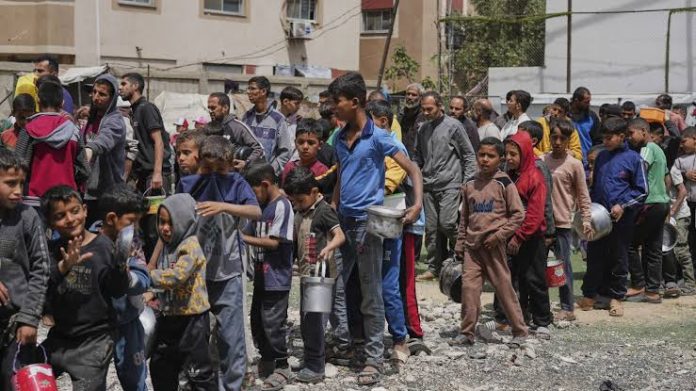Amid continuous Israeli hostilities and a crippling fuel blockade, the United Nations has issued a grave warning: life-saving water and humanitarian services in Gaza are on the brink of collapse. The UN Office for the Coordination of Humanitarian Affairs (OCHA) reported ongoing attacks on Gazans, including deadly gunfire near aid distribution points—even on routes sanctioned by Israeli authorities for humanitarian convoys.
Speaking to the CGTN,“Israeli authorities must urgently permit fuel deliveries throughout Gaza, especially in the north,” OCHA emphasized. “Without fuel, essential humanitarian operations will halt, and more lives will be lost.”
The United Nations Children’s Fund (UNICEF) also raised the alarm. “If this over 100-day fuel blockade continues, children will begin to die of thirst,” it said. Fuel is critical for water treatment and distribution, vital to the survival of over 2 million Palestinians.
UNICEF revealed that child malnutrition cases spiked by nearly 50% in May compared to April. As water systems break down, the risk of disease and dehydration skyrockets.
Some temporary relief was achieved when fuel was successfully retrieved from Rafah to support southern Gaza’s basic services. However, humanitarian groups warn this is only a short-term fix. Without consistent fuel access, the entire aid infrastructure is at risk of collapse.
The UN also expressed deep concern for the mental health of Gaza’s children. “Caregivers report rising psychological distress among children,” OCHA noted. In response, over 1,000 children across displacement camps in Gaza City, Deir al-Balah, and Khan Younis received emotional support sessions last week. More than 2,000 caregivers also received mental health support.
The World Health Organization (WHO) has trained hundreds of front-line workers in psychological first aid, attempting to restore a sense of safety among the devastated population.
Adding to the humanitarian crisis, the Israeli military has issued fresh evacuation orders in Jabalya, displacing another 30,000 people. Most areas in Gaza remain under such orders, with no shelter supplies permitted for over four months. Aid groups have been forced to repurpose wooden pallets from food deliveries to patch up makeshift shelters in Khan Younis.
Despite attempts to coordinate 14 humanitarian missions on Monday, six were blocked, including efforts to deliver fuel and water and to recover bodies and disabled vehicles. Some health and sanitation operations were permitted, but the denial of key missions underscores the continuing obstruction of aid.
The international community is being urged to act immediately to lift the blockade and allow the uninterrupted flow of life-saving supplies.




